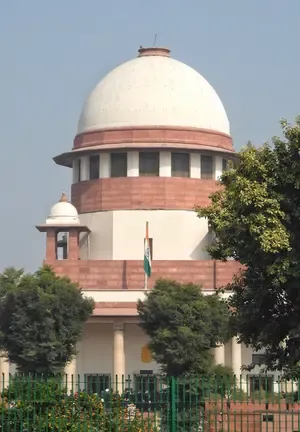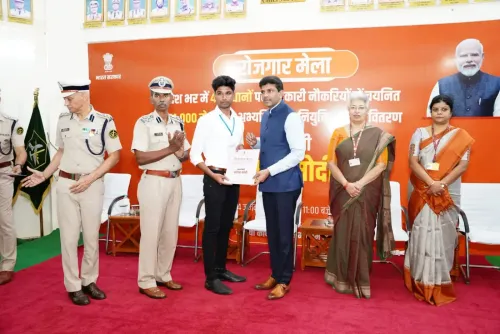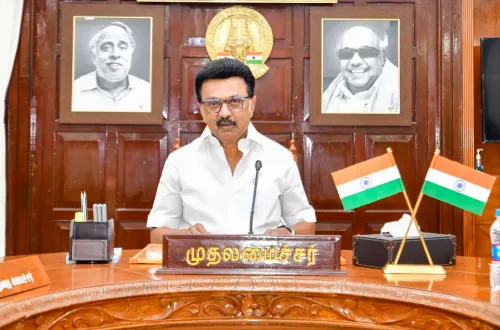Landmark Judgment: SC Places President Under Judicial Scrutiny, Establishes Three-Month Limit for Bill Assent

Synopsis
Key Takeaways
- The Supreme Court has established a three-month limit for Presidential assent on bills.
- The ruling addresses delays from governors in approving state legislature bills.
- Judicial review can now extend to Presidential functions as per Article 201.
- The decision aims to enhance accountability in governance.
- The ruling has been hailed as a significant step for federalism in India.
New Delhi, April 12 (NationPress) In a significant resolution of a complex constitutional issue in Tamil Nadu, the Supreme Court (SC) has reportedly established a three-month timeframe for both Presidential and gubernatorial assent to bills that have been passed by the legislature a second time. This ruling has led to widespread criticism regarding potential ‘judicial overreach’ by attempting to subject Presidential actions to judicial oversight.
A Bench composed of Justices J.B. Pardiwala and R. Mahadevan overruled the decision of Tamil Nadu Governor R.N. Ravi, who had declined assent to a total of 10 pending bills. The court determined that the President must also reach a decision on bills referred by governors within a maximum of three months.
The judgment, which was published on the court’s website on Friday evening, aims to reinterpret the constitutional framework and raises questions about the federal dynamics between the Centre and the states.
The ruling indicates that the functions of the President are subject to judicial review under Article 201, which pertains to “Bills reserved for consideration.”
Article 201 states: When a Bill is reserved by a Governor for the President's consideration, the President must either declare assent or withhold it.
The Article further stipulates: Provided that, in cases where the Bill is not a Money Bill, the President may instruct the Governor to return the Bill to the Legislature along with a message as described in the first proviso to Article 200. Once returned, the Legislature must reconsider it within six months, and if passed again, it shall be resubmitted for the President's consideration.
In resolving the Tamil Nadu deadlock in favor of the DMK-led state administration, Justices Pardiwala and Mahadevan exercised the court's inherent powers under Article 142 of the Constitution, declaring the 10 withheld Bills as having been assented on the date they were presented to the Governor after the State legislature's reconsideration on November 18, 2023.
The court noted that the Governor had kept the 10 bills pending for an excessively long duration, violating principles established in the Punjab Governor's case in November 2023.
The Bench suggested that the Governor appeared to have been influenced by external factors in this regard.
The Supreme Court, in its judgment, asserted that it is not permissible for the Governor to reserve a Bill for the President's consideration once it has been presented to him in the second round after being returned and repassed by the legislature.
Legal experts and former law minister Kapil Sibal praised the ruling.
Sibal pointed out that delays in assent from governors regarding bills approved by state legislators have historically been used as a means of harassment by the Central government, since the governor is appointed by the federal government.
“The Supreme Court has eliminated the potential for unjustified delays and established a three-month limit for governors to make decisions,” he remarked, noting that the Attorney General had opposed the ruling regarding the deadline, but the apex court rejected the government's opposing argument.
Sibal described it as a landmark verdict and a boon for India's federal structure.










